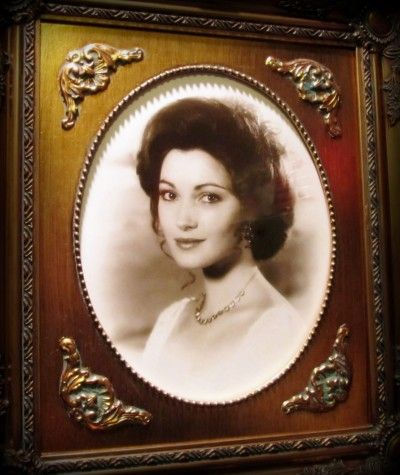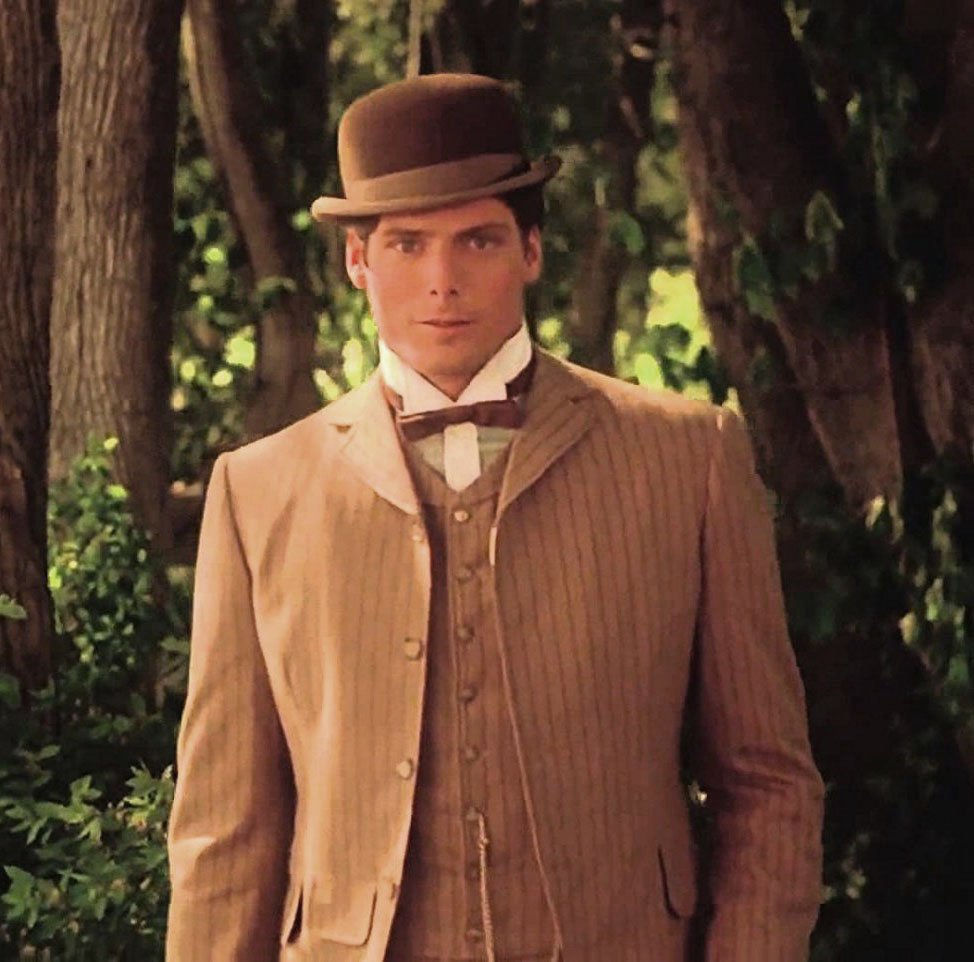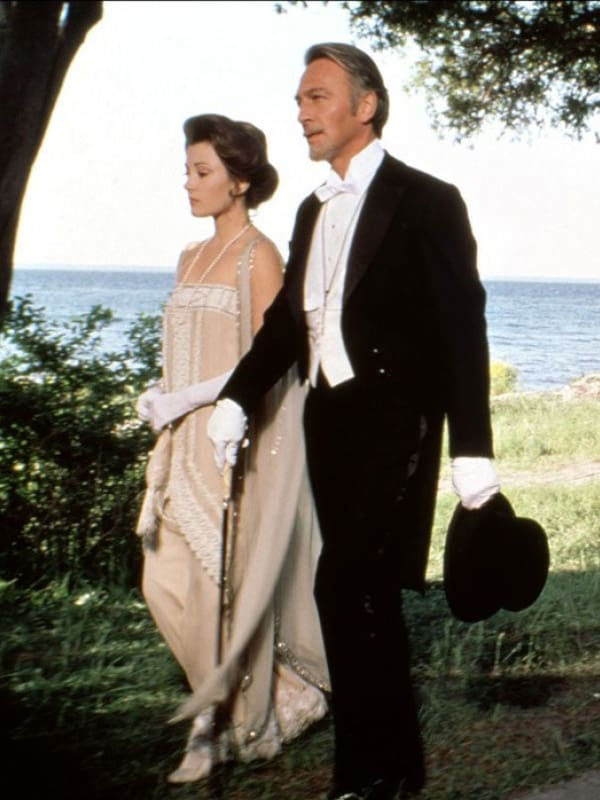The Simple Beauty of Somewhere in Time
- Kaleb A. Brown
- Jun 18, 2022
- 11 min read
Updated: Jul 31, 2022

On Saturday, June 4, for the first time in nearly three years, I strolled under the glimmering marquee overlooking Lahser Road, advertising one of Detroit's best-kept secrets: the Redford Theatre. The Redford is a movie palace that opened in 1929, one of the last of its kind left standing in Michigan. A smile snuck onto my face as I walked through the theatre's glass doors, my Phat Farm boots clomping across the red carpet of the lobby. The Redford's crown jewel, its Barton Pipe Organ, was undergoing maintenance, rendering it uncharacteristically silent for the night. Picking up its slack across the stage was a piano, playing the leitmotif of one of my favorite movies — the movie I came to see.
Save for the mute organ, all was as I remembered. The concession stand, manned by two volunteers, advertised pop, chips, candy, and popcorn, so reasonably priced it felt criminal. Above one staircase was a Japanese painting of two men near a road, one brandishing a katana, the other a pipe. Above the other, a painting of two women in kimonos in front of a river. The Japanese motif was solidified in the auditorium, wherein the space is surrounded by reliefs designed to look like a Japanese-styled building. The ceiling is painted to look like a shimmering, starry night sky. Refreshments in hand, I made way to my favorite seats near the back.
I came to see Somewhere in Time. It was a reunion of sorts, as I was introduced to the 1980 film, and the Redford itself, in 2015, over seven years ago.

I had gone for Valentine's Day with my girlfriend at the time, thinking it would just be a cool way to spend Valentine's. Little did I know, a new love affair would bloom between me and the theatre itself. We enjoyed the movie, and as the credits rolled, we shared a kiss. I'd like to believe that the movie moved us to the point where we felt we had to kiss. But no, we kissed after every movie we saw together. Whether we were watching Somewhere in Time or Thor: The Dark World, we'd cap off date night with a kiss. It was just our Thing™.
As it would so happen, that was the last time it would be our Thing™, as we broke up a little under a month later.
It would be natural to assume I grew to hate Somewhere in Time. While it's a bit reductionist, you could categorize Endless Love as an anti-love story. While it's committed to showing people in love, it doesn't shy from the destructive aspects that come with it, how it can morph into a corrupting obsession, how downright miserable it can make you. Somewhere in Time, meanwhile, is framed in a very positive manner. Any way you slice it, Somewhere in Time is a love story, so archetypical, so idyllic that it can come across as schmaltzy. Thus, it stands to reason that such an optimistic depiction of love in the face of my breakup would make me bitter.
On the contrary, dear reader; I've watched Somewhere in Time four times now and I've loved it more each time. It's among my favorite movies. As to why, well, that's what this post aims to answer.
I find writing positive reviews harder than writing negative ones. I know I made the shit look easy in my Endless Love review, but that was after reading the book thrice and taking pretty extensive notes the third time. For seven years, the intricacies of my love for Somewhere in Time have eluded me. But it finally hit me; I've been going about this entirely wrong. The is no intricacy.
I love Somewhere in Time because of its simplicity.
Somewhere in Time takes place in 1980 and stars Christopher Reeves as Richard Collier, a Chicago playwright suffering from writer's block. He hopes to find motivation at Mackinac Island, where he debuted a play eight years prior. While perusing an exhibit at the island's hotel, he's transfixed by a portrait of late actor Elise McKenna (Jane Seymour) taken in 1812. He immediately becomes enamored with her and begins researching her, discovering, to his shock, that he met her as an old woman during the night of his play wherein she gave him a locket and cryptically begged him to come back to her. Upon realizing this, he becomes determined to travel through time to meet her.

It's a testament to how simple the story is that even saying this little feels like I'm creeping into spoiler territory. Just this short blurb takes up a decent portion of the film's runtime. And believe me when I say I didn't excise much. What you see is largely what you get. The package of Somewhere in Time is simple to the point where several critics found it cliche.
Part of this simplicity can be seen in what the movie removes as an adaptation. In Bid Time Return, the novel that the movie is based on, Richard is afflicted with a brain tumor and ultimately dies from it, throwing it into question whether or not the events of the story actually took place or if they were simply a hallucination brought upon by his ailment. The movie, through both the presence of an older Elise and doing away with the tumor entirely, leaves no room for interpretation — this is real. The original story is ambiguous, and with that ambiguity comes room for jadedness and meanness. Without it, there's a purity that exists in the movie that doesn't in the book.
There's also the question of the identity of William Robinson, Elise's overbearing manager who seems to have prior knowledge of Richard's arrival and the irrevocable damage it will bring to Elise's career. The natural assumption is that Robinson is a fellow time traveler. Yet this is never answered conclusively. The question is barely even broached. One idea is that this gives the movie a sense of mystique, but I find it more likely that director Jeannot Szwarc simply felt that delving into this thread would take away from what really mattered — the romance.
Simplicity is at play in how easily our leads come together. While he's separated from her by one of the strongest metaphysical forces known to the universe, it's still notable that Richard falls in love with Elise at first sight. It similarly doesn't take Elise very long to be charmed by Richard in turn. When he first meets her in 1912, she asks "is it you," obviously priming us to believe they were destined to meet. The movie makes no bones about the fact that these are two people in love and it doesn't want us to question this. While the two are separated, it's due to circumstance rather than an incompatibility on their part. We're meant to see their relationship as pure, free of the complications that mar relationships in reality.

Somewhere in Time's simplicity can also be seen in its soundtrack, which is beautifully composed by John Barry. There really isn't much to the film's signature songs — its main theme and “Rhapsody on a Theme of Paganini”. There's a sonic journey, an arc, to be sure, but the waves we listeners sail atop of aren't particularly large nor numerous, making for a smooth ride. The result isn't a score that’s easy to listen to, but rather, one easy to feel. The melody is crystal clear, making the songs extremely evocative. When the chords of that main theme hit, they reverberate down your spine and echo through your goddamn soul. They're the type of songs that are so simple, yet affecting, that they stick with you for years.
The film's simple beauty is encapsulated in its setting — the picturesque Mackinac Island. Establishing shots are always pristine, there's seldom hustle nor bustle to distract us. Even when there are busy shots, they're given an air of elegance due to the period-appropriate clothing the cast wears. It begins to feel unreal, yet there's little movie magic in play. Mackinac and the Grand Hotel are just that lovely. And like the music, the setting sticks with you. Ever since I first saw Somewhere in Time, it's been my dream to get married at the Grand Hotel.

And that — daydreaming about spending an ungodly ammount of money to partake in a traditionalist ceremony on an island in the sun — is a perfect example of what simplicity does for this movie. It fosters a sense of idealism that wouldn't be possible if it were preoccupied with the details.
It's understandable if the simplicity and subsequent idealism of Somewhere in Time make it sound a bit like a Hallmark movie. Thankfully, Somewhere in Time has a secret ingredient that carries it the rest of the way home: earnestness. Because as schmaltzy as the movie can be, it never ends up feeling insincere. This is mostly thanks to the sense of realism you get when watching this movie. And no, that's not a paradox. Somewhere in Time is a fairytale, yes, but one that feels approachable.
Take the leads, for example. For his role of Richard Collier, Christopher Reeves no doubt channeled his Clark Kent rather than his Superman. There's really no other way to say it: Christopher Reeves is a goddamn dork in this movie. And it's fucking adorable. He practices lines in the mirror like a schoolboy prepping for his first date. He hypes himself up a bit before knocking on Elise's door. He's a bit of a fish out of water and engages in some light slapstick. Don't get me wrong, his charm is still on display, but it's presented in a way that doesn't feel larger than life. He's an everyman, he could be you.

Opposite Reeves is Jane Seymour's Elise McKenna. She's the definition of grace and poise. When Richard first lays eyes on her portrait, there's an electricity to the scene and it's hard not to be as arrested as he is. But there is more to Elise than meets the eye. She isn't just the paragon of beauty that her manager desires her to be. When she's with Richard, she can be as dorky as he is and she's similarly adorable. The scene when she lets her hair down, both literally and metaphorically right before the climax (literally and metaphorically) sends chills down my spine. Much like Richard, beyond the extremely beautiful, seemingly unapproachable exterior, we're treated to someone who feels real, feels like us.

There are other doses of realism that anchor the movie. As stated before, Richard is a bit of a fish out of water. While, again, the film doesn't get into the weeds of the detail, I still appreciate it nonetheless. An example of this is the fact that Richard's suit, while relatively period-appropriate, is still apparently ten years out-of-date (though this is apparently exaggerated). A less humorous example of the movie's realism is the fate of the characters, with Richard being yanked back to the present. Somewhere in Time is idealist enough to not have its leads chafe against each other in any way, but it's realistic enough to tell us that the world isn't perfect. Love is strong, but the circumstances and just plain unfairness of the world often get in its way. Love wins out in the end, but there's enough realism in the film to render the ending bittersweet. And I really appreciate it. It makes the film much more poignant than it would otherwise be.
Perhaps the most notable example of realism in Somewhere in Time is its method of time travel, which is somehow both extremely pedestrian yet innovative. Leave all the technobabble at home, kids, because the method for rewinding the clock in *Somewhere in Time* is very simple. Are you ready for it? You have to believe. That's it. Time travel in this movie works somewhat as a hypnosis of sorts, with the user convincing themselves that they are at the destination. Other viewers are free to disagree, but I can't help but feel there's something in the simplicity that other time travel stories don't get. Because, philosophically, what is time travel if not a frame of mine, a yearning, a belief that you belong not in the here and now, but in the yesteryear. There's something beautiful about it.
But where there's beauty, there are thorns. Paradoxically, Somewhere in Time's greatest strengths are its greatest weaknesses. Like its time travel, the movie lives and dies by your belief.
The earnestness and simplicity serve as a double-edged sword. It asks you to not only believe in a thing called love, but to believe in its mysticism and cherish it. At the end of the day, if you don’t believe a man can honest-to-God fall in love with a portrait, you don’t believe in the movie.

It's a very polarizing movie — you'll either love it with every fiber of your being or you'll find it to be one of the most insipid pieces of media you've ever had the displeasure of consuming. It boils down to the fact that the movie does very little to challenge. It doesn't do much to make viewers believe in its story, its world. It just presents its world as is and hopes that viewers that already are pre-disposed to believe in it gravitate towards it.
I can't find any glaring flaws in this movie, but that's because, under my thick plaque of cynicism, I'm a hopeless romantic. Other viewers can easily find holes in Somewhere in Time.
In his review of it, Roger Ebert criticizes Somewhere in Time, saying it "drips with solemnity." He goes on to remark that "this is the kind of romance so sacred, so serious, so awesome, that you have to lower your voice in the presence of it. Romances like those are boring even to the monstrous egos usually involved in them." My annoyance with the review grows when he wryly remarks that "[it's] a little futile to travel 68 years backward into time for a one-night stand" and when he lambasts the fact that time paradoxes stemming from Richard's temporal origin are ignored.
My knee-jerk reaction is to hiss "he doesn’t get the point!" But then I calm down a bit and actually think for a moment. Once I step back, away from my feelings, it hits me: "well, no shit he doesn’t get the point." The movie is the very opposite of critic-proof. You can tell as much by comparing the Rotten Tomatoes critic score of 55% to the audience score of 88%. Critics, and I mean actual critics, not a dweeb with too much free time and an addiction to the clickety-clack of his keyboard, are trained to pick apart media and see what makes it work. And very little of Somewhere in Time works.
The time travel is novel, yes, but it's so simple and takes such a backseat that if you are invested in it, the movie will leave you out to dry. The romance is beautiful, it strikes a chord with me, but I doubt it's fresh. The simplicity that I so praised can make the movie feel two-dimensional to a more critical eye. There are certain elements of the movie that can feel weak, underdeveloped, or overly sentimental to someone who isn't pre-disposed them.
Take the sex scene. We see McKenna let down her long, brown hair, as she stares into Richard's eyes, a soft, yet genuine smile on her face. We see her slipping off her clothes as she leans into Richard, pushing him onto the bed, straddling on top of him, the two of them obscured by a nearby curtain. Richard then turns to blow out the candle on the other side of the curtain, rendering the scene black before we fade into the next morning. It's essentially an artsy fade-to-black. The second time I watched Somewhere in Time was in a class. A classmate criticized the sex scene, essentially calling it hokey. It just isn't that kind of movie. Think less "Freekn' You" or "Let's Get It On" and more "Stay Awhile" (maybe "Anytime, Anyplace" but that’s pushing it).

Take also Elise's plight. She unquestionably gets the rawest deal of all the characters. She meets the love of her life before having him mysteriously yanked away from her. She then spends the rest of her long life withdrawn. Sure, Richard sinks into depression and subsequently starves himself to death after losing Elise, but this takes place over a week and not several decades. It doesn't take much thought to realize Elise gets an extremely raw deal. And the movie essentially asks you to ignore this.
The movie is cheesy to the nth degree. You wouldn't be at fault for finding this movie's romantic idealism to be hokey at best and damaging at worst. As much as I'm fond of Somewhere in Time, I wouldn't ever think of calling it one of the best movies.
And yet, it remains one of my favorites.
I still had the goofiest smile as I watched Richard pursue the woman he was smitten with. I still cried as the credits rolled.
Because I'm the type of person who believes in love at first sight, who believes one can be bewitched by an old portrait, who believes in true love, who believes in soulmates, who believes he can get married on an island in the sun. And even during times when my belief falters, I'll always want to believe these things are possible. At the end of the day, that's why I'm still drawn to this movie even though it's intrinsically tied to my failed relationship — because the bitterness of the breakup can’t sour my belief, my hope that, somewhere in time, I'll find a love like Richard and Elise did.

Commentaires